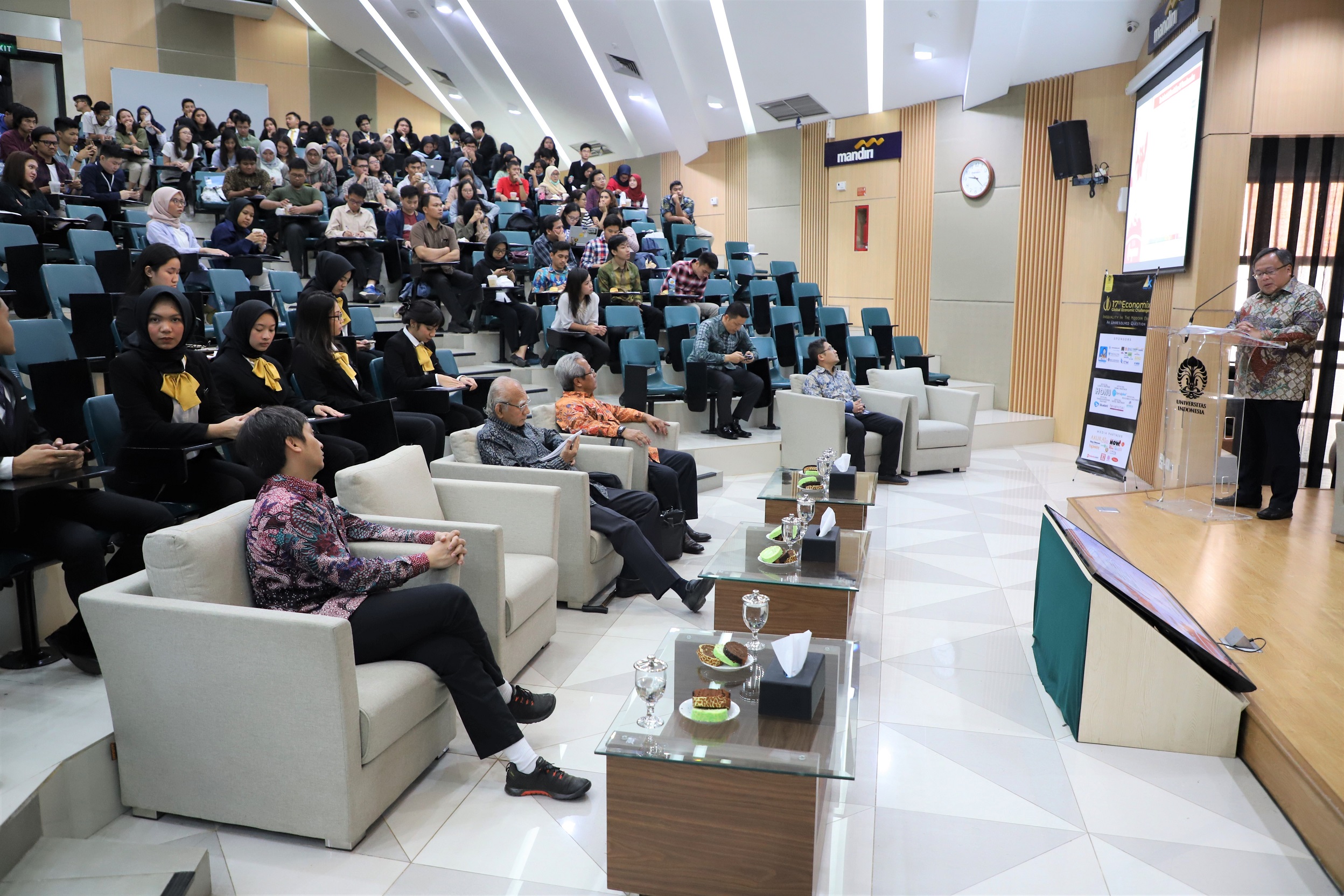This Is Bambang Brodjonegoro’s Message to Overcome Digital Economy Productivity in Inequality
Nino Eka Putra ~ FEB UI PR
DEPOK – Study of Economics and Development (KANOPI) FEB UI held a Seminar on 17 Th Economix Global Economic Challenges discussing “Inequality in the Modern Era: An Unresolved Question” which took place at the Soeria Atmadja Auditorium, Dekanat Building, on Monday (11/4) / 2019).
The Minister of Research, Technology and Head of the Republic of Indonesia’s National Innovation Research Agency as well as the speaker in this seminar, Bambang Brodjonegoro said that technological progress will bring higher productivity in supporting human activities. Technological progress has 9 pillars marked by the emergence of autonomous robots, big data analytics, supply chains, additive manufacturing, cybersecurity, industrial internet of things, cloud / climate change, horizontal & vertical integration, and simulation & augmented reality.
Based on data on Indonesia’s digitalization of a population of 256.2 million, it shows that 132.7 million internet users are active. Then, 371, 4 million mobile connected, 95.87 million smartphone users, 123, 3 million mobile internet users with an average of 4 hours a day.
Meanwhile, the comparative data of Indonesia with ASEAN countries in the 2016 network readiness index stated that Indonesia was in position 73. Then, in the global information technology development index in 2016 it was in position 115. And the GSMA cellular connectivity index was valued at 53.9.
“The development of digital technology has a major impact on the economic sector with an estimated reach of USD 130 billion in the coming year. Besides that, the development cannot be separated from the growth of e-commerce to financial technology (fintech) which is the mainstay of the people’s economic drivers, “he said.
The digital economy in Indonesia has the potential to reach USD 130 billion in 2020 or equivalent to Rp 1,700 trillion. Therefore, Bambang stressed that the development of the digital economy still needs to be supported by a variety of readiness ranging from human resources to data management.
Bambang continued, one of the products of the development of the digital economy that has had a big impact on the economy and reduced unemployment is on-demand transportation services. The opportunity is still very large, especially since the Indonesian market is still very comfortable with on-demand transportation services based on mobile data.
However, it is unfortunate that the digital economy is currently not fully facilitated in each region and can further aggravate inequality in Indonesia. This is compounded by the uneven internet network in all regions. Of the 514 districts / cities in Indonesia, there are only 432 districts / cities that can enjoy internet facilities, and only 222 districts / cities that can already enjoy the 4G network.
“So, you as an economics student especially FEB UI, have to think about how productivity will be well distributed to overcome inequality. In addition, it must know how to deal with technological progress and ensure that technological progress will not reduce equality. This is so that there aren’t too many gaps that can trigger some social problems and make sure that you understand the political economy of inequality. But, at the same time you also understand the technological approach to inequality, “Bambang said in closing his presentation. (Des)

